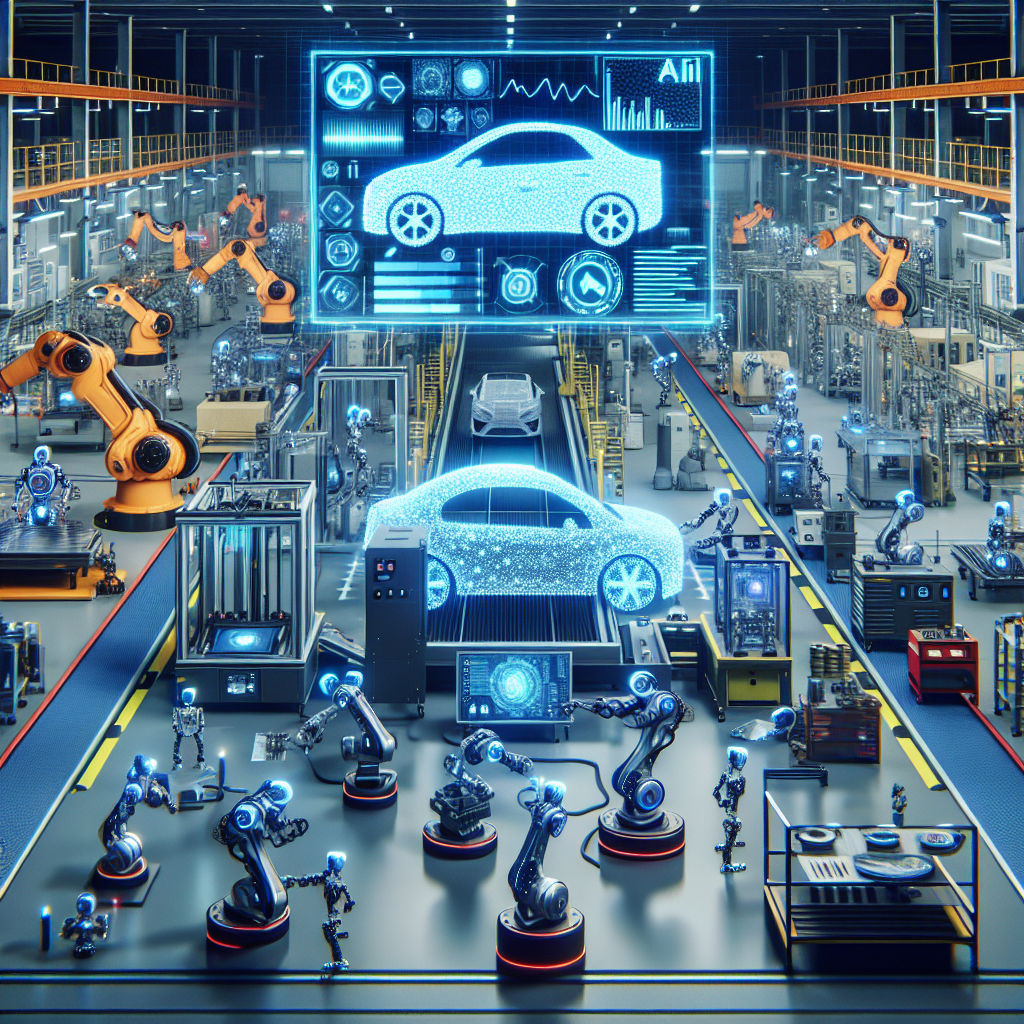The Future of AI-driven Customization in Manufacturing
In recent years, artificial intelligence (AI) has been making significant strides in various industries, including manufacturing. One of the most promising applications of AI in manufacturing is customization. AI-driven customization refers to the use of artificial intelligence technologies to tailor products and services to meet the unique needs and preferences of individual customers. This approach allows manufacturers to offer personalized products at scale, leading to increased customer satisfaction and loyalty.
The potential of AI-driven customization in manufacturing is vast. By leveraging AI algorithms and machine learning techniques, manufacturers can analyze customer data, predict future trends, and optimize production processes to meet the specific demands of individual customers. This level of customization was previously only possible through manual labor or expensive, time-consuming processes. However, with the advent of AI, manufacturers can now offer highly personalized products and services more efficiently and cost-effectively.
One of the key benefits of AI-driven customization in manufacturing is the ability to reduce waste and improve efficiency. By producing only what is needed, manufacturers can minimize excess inventory and reduce the environmental impact of their operations. Additionally, AI-driven customization can help manufacturers streamline their supply chains and improve overall production efficiency, leading to cost savings and increased profitability.
Another advantage of AI-driven customization in manufacturing is the ability to create unique, innovative products that cater to the specific needs and preferences of individual customers. By analyzing customer data and feedback, manufacturers can identify trends and patterns that can inform the design and production of customized products. This level of personalization can help manufacturers differentiate themselves in a competitive market and attract a loyal customer base.
AI-driven customization also has the potential to revolutionize the way products are designed and manufactured. By harnessing the power of AI, manufacturers can create highly complex, intricate designs that were previously thought to be impossible. AI algorithms can analyze vast amounts of data to identify patterns and trends that can inform the design process, leading to innovative, cutting-edge products that meet the specific needs of individual customers.
Furthermore, AI-driven customization can help manufacturers adapt to changing market demands and trends more quickly and effectively. By analyzing real-time data and feedback, manufacturers can adjust their production processes in real-time to meet shifting customer preferences and demands. This level of agility and flexibility is essential in today’s fast-paced, ever-changing market landscape.
Overall, the future of AI-driven customization in manufacturing is bright. As AI technologies continue to advance, manufacturers will have access to even more powerful tools and capabilities to create highly personalized, innovative products that meet the specific needs and preferences of individual customers. By leveraging AI-driven customization, manufacturers can differentiate themselves in a competitive market, reduce waste and improve efficiency, and create unique, cutting-edge products that cater to the demands of the modern consumer.
FAQs:
Q: How can AI-driven customization benefit manufacturers?
A: AI-driven customization can benefit manufacturers in several ways. By analyzing customer data and feedback, manufacturers can create highly personalized products that meet the specific needs and preferences of individual customers. This level of customization can help manufacturers differentiate themselves in a competitive market, reduce waste and improve efficiency, and create unique, cutting-edge products that cater to the demands of the modern consumer.
Q: What are some examples of AI-driven customization in manufacturing?
A: One example of AI-driven customization in manufacturing is the use of AI algorithms to analyze customer data and feedback to inform the design and production of customized products. Another example is the use of AI to optimize production processes and streamline supply chains to meet the specific demands of individual customers.
Q: How can manufacturers implement AI-driven customization in their operations?
A: Manufacturers can implement AI-driven customization in their operations by investing in AI technologies and tools that can analyze vast amounts of data, predict future trends, and optimize production processes. By leveraging AI algorithms and machine learning techniques, manufacturers can create highly personalized products and services that meet the specific needs and preferences of individual customers.
Q: What are the challenges of implementing AI-driven customization in manufacturing?
A: One of the main challenges of implementing AI-driven customization in manufacturing is the complexity of integrating AI technologies into existing production processes. Additionally, manufacturers may face challenges in collecting and analyzing vast amounts of customer data and feedback to inform the design and production of customized products. However, with the right tools and strategies, manufacturers can overcome these challenges and reap the benefits of AI-driven customization in manufacturing.

